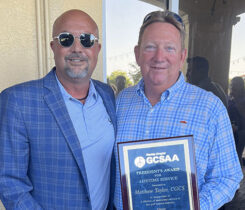More than 400 organizations sent letter to Congress regarding pesticide regulation
RISE (Responsible Industry for a Sound Environment), Golf Course Superintendents Association of America and more than 400 organizations — including dozens of state superintendent associations — joined together to send a letter to all members of the U.S. Senate and House of Representatives voicing support for the current regulatory framework in place under the Federal Insecticide, Fungicide and Rodenticide Act (FIFRA).
The letter is in direct response to recently introduced legislation (S. 269) that would undermine the current science-based regulatory system that guides the nation’s pesticide laws. This is the third time legislation involving such restrictive language has been introduced, and the third time hundreds of organizations have reached out to Congress to express concern over the ability to manage public health risks if access to pesticide products were to be limited.
“This bill rejects 50 years of established federal regulatory processes under FIFRA and would repeal decades of work and scientific advancements made by EPA’s scientific experts,” said Megan Provost, RISE president. “We want the industry to be subject to a science-based regulatory framework that evolves as science evolves to keep our products safe and accessible — unfortunately, S. 269 lacks that scientific foundation and would jeopardize the tools necessary for protecting our families, homes, environment, and infrastructure.”
If passed, S. 269 would roll back decades of regulation and scientific progress in regulating pesticides.
RISE said Congress amended FIFRA several times to strengthen the regulatory standard for safety — most recently through the Food Quality Protection Act (FQPA) that added specific protections for children and sensitive populations. Under existing law, pesticides that are approved for use by EPA are subject to review to meet the most current scientific standards.












